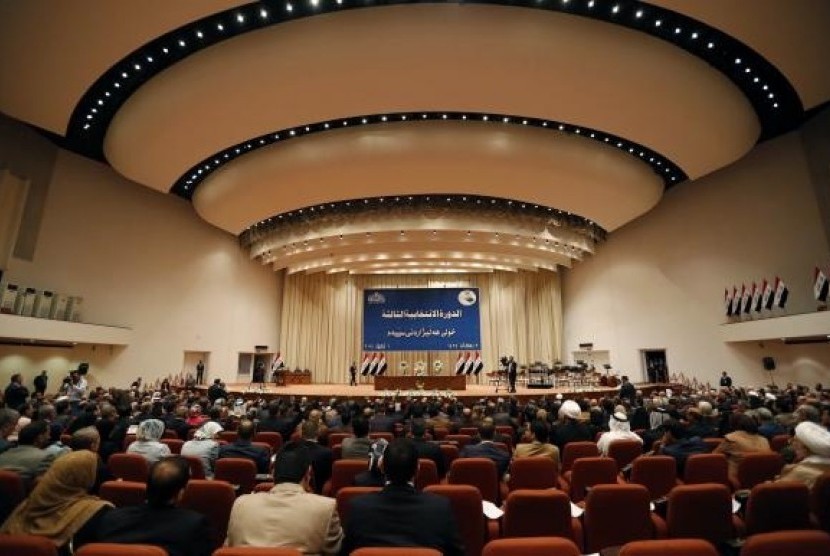REPUBLIKA.CO.ID, BAGHDAD - Iraq's new parliament postponed its next session for five weeks on Monday, extending the country's political paralysis in the face of a Sunni Islamist insurgency which claimed the life of an army general on the northwestern outskirts of Baghdad.
Citing the inability of political camps to reach "understanding and agreement" on nominations for the top three posts in government, the office of acting speaker Mehdi al-Hafidh said parliament would not meet again until Aug. 12.
A senior Iraqi general was killed in fighting with insurgents close to Baghdad on Monday, as the army fights to hold militants back from the capital. Major General Negm Abdullah Ali, commander of the army's sixth division, responsible for defending part of Baghdad, was killed just 16 km (10 miles) northwest of the capital.
Putting off the work of reaching consensus for five weeks is a slap in the face to efforts by Iraq's Shi'ite clergy - along with the United States, the United Nations and Iran - to foster an inclusive government to hold the country together. With no signs that Shi'ite Prime Minister Nuri al-Maliki will abandon his bid for a third term, there is a risk that Iraq will fragment along ethnic and sectarian lines.
"Things are moving faster than the politicians can make decisions," a senior Shi'ite member of parliament told Reuters.
The Islamic State, an al Qaeda offshoot, and a patchwork of Sunni insurgents are holding territory they seized in northern and western Iraq last month. Kurds, who run their own autonomous region in northern Iraq, have taken advantage of the chaos to expand their territory.
Maliki's opponents blame his divisive rule for fueling the political crisis and want him to step aside. They accuse him of ruling for the Shi'ite majority at the expense of the Sunni and Kurdish minorities.
Maliki said last week that he hoped to overcome the challenges blocking the formation of a new government after the new parliament's first session ended without agreement on the top posts of prime minister, president and parliament speaker.
Under a governing system put in place after the removal of Saddam Hussein, the prime minister has always been a member of the Shi'ite majority, the speaker of parliament a Sunni and the largely ceremonial president a Kurd.



